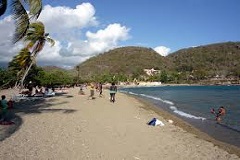Indicators of Sustainable Local Tourism in coastal communities
Keywords:
sustainable local tourism, coastal communitiesAbstract
Starting in the nineties in Cuba, the tourism sector gradually began to become one of the main drivers of the national economy. As an insertion in this process and using its natural and cultural wealth, many of the initiatives in the Cienfuegos province focused on it for its development. The coastal zones are one of the main territories that are committed to its implementation, taking advantage of their own resources as development opportunities. In this sense, tourism from a sustainable perspective is presented as a valid option for these localities, however, all the benefits and difficulties that this activity can bring to them are not fully known. For this reason, the present study aims to propose indicators of sustainable local tourism in coastal communities, using theoretical and empirical methods of scientific research to respond to this approach. The results that are offered provide a new work tool for local actors, by having indicators of sustainable local tourism in coastal communities, which contribute to decision-making based on tourism management from the economic, social and environmental dimensions.
References
Águila, Y. (2019). El desarrollo local.
Bleze, H. (2022). 12 tendencias en turismo para el 2021. https://www.ostelea.com/actualidad/blog-turismo-en-turismopaea-el-20211
Brundtland, H. (1987). Nuestro futuro común. Asamblea General de las Naciones Unidas. Comisión Mundial sobre el Medio Ambiente y el Desarrollo. https://www.ecominga.uqam.ca/PDF/BIBLIOGRAPHIE/GUIDE_LECTURE_1/CMMAD-Informe-Comision-Brundtland-sobre-Medio-Ambiente-Desarrollo.pdf
Camacho, R.E., Carrillo, R. A., Rioja, P. TM., & Espinoza. (2011). Cómo realizar un diagnóstico empresarial. https://www.infoautonomos.com/blog
Cañizares Cedeño, E. L., & Suárez Mena, K. E. (2022). El Método Delphi Cualitativo y su Rigor Científico: Una revisión argumentativa. Sociedad &Amp; Tecnología, 5(3), 530-540. http://doi.org/10.51247/st.v5i3.261
Casalis, A. (2009). ¿Qué es el desarrollo local y para qué sirve? Recuperado de Centro de Estudios para el Desarrollo Local. www.cedelargentina.org
Centro de Investigaciones Económicas para el Caribe. (1998). El turismo como instrumento para la sostenibilidad en el gran Caribe. En IX Congreso de Economistas de América Central y el Caribe. www.cieca,org/turismo.htm
Covas, R. (2019). Desarrollo del Turismo en Cuba. http://www.cubasolar.cu/
García, F. M. (2019). Estrategias de desarrollo para la Sucursal MARLIN Guardalavaca S.A. (Tesis de Grado). Universidad de Holguín.
Hair, J., & Colectivo de autores. (1999). Análisis Multivariante (Quinta Edición). Prentice Hall.
Hermida, M. (2017). Los indicadores de la dimensión social del desarrollo sostenible, el caso de Tierra del Fuego. https://doi.org/10.24215/18537863e029
Lobaina, R. (2018). Cienfuegos impulsa su desarrollo local. www.cubadebate.cu
Menoya Zayas, S. (2011). Indicadores para medir y gestionar la sostenibilidad. www.m.monografias.com/trabajos88/indicadores-sotenibilidad-hotel-ermita-vinales-cuba/indicadores-sostenibilidad-hotel-ermita-vinales-cuba.shtml#fundamenta
ONEI. (2020). Turismo internacional indicadores seleccionados. Centro de Gestión de la Información Económica, Medioambiental y Social. www.onei.cu
Organización de Naciones Unidas (ONU) (1994). Recomendaciones sobre estadísticas del turismo. www.e-unwto.org
Organización Mundial del Turismo (OMT) (1995). Carta del Turismo Sostenible. Conferencia Mundial de Turismo Sostenible. Islas Canarias, España. www.insula.org
Organización Mundial del Turismo (OMT). (2008). Definición de turismo. https://definicion.de/turismo/
Organización Mundial del Turismo (OMT). (2019). El turismo en la Agenda 2030. www.e-unwto.org
Ramírez Pérez, J. F., Pérez Hernández, I., Rodríguez Martínez, M. & Miranda Camejo, H. (2020). Turismo local sostenible: contribución al desarrollo territorial en Cuba. Revista Cooperativismo y Desarrollo. 8(3), 425-447. https://coodes.upr.edu.cu/index.php/coodes/issue/view/18/showToc#collapse-article-397
Rioja, P. RP., Camacho, R. E., Carrillo, R., A., Espinoza, M. E., & Porras, M. L. (2020). Adaptación de indicadores de turismo sostenible: Implementación en Chiapas, México. http://dx.doi.org/10.15517/isucr.v21i44.43943

Downloads
Published
How to Cite
Issue
Section
License

This work is licensed under a Creative Commons Attribution-NonCommercial-NoDerivatives 4.0 International License.
- Sending a contribution to the Cuban Magazine of Finance and Prices (RCFP) implies a non-exclusive assignment of rights, which includes: Reproduce the Article in whole or in part and communicate the Article to the public in print or electronic format, combined or not with the works of third parties, such as by making the Article available to the public via the Internet or any other network, as part of a database, with on-line or off-line access, for use by third parties; Translate the Article into other languages and release the translation to the public; Create adaptations, summaries, or excerpts of the Article and other derivative works thereof, and exercise all of your rights in such adaptations, summaries, excerpts, and derivative works; Include the Article, either in its translated, adapted or summarized version, totally or partially, in a computerized database and make it available to third parties; Include the Article, totally or partially, either in its translated, adapted or summarized version, in a selection or compilation of texts; Rent or lend the Item to third parties; Reproduce the Article by means of reprography, without prejudice to legal limitations.
The Author of articles published in the Cuban Magazine of Finance and Prices (RCFP) may exercise the following rights:
- Reproduce the Article, totally or partially, and disseminate its content or make it available to the public, in printed or electronic format, as part of a teaching content or as a compilation, for use in the academic or research field in the institution to the one to which the Author belongs or in those institutions to which he belongs.
- Publish the Article on the Internet or authorize the Author's institution (or any other appropriate organization) to do the same, immediately from the date of publication of the Article in the journal: within the institution's closed network (p. eg, the intranet); or in publicly accessible institutional repositories or centrally organized repositories, provided that a link to the Article is included on the journal's website.
- Grant to the Author's own institution (or any other appropriate organization) the authorization to reproduce the Article in order to prevent its deterioration or, if the original is in an obsolete format or the technology to use it is not available, in order to ensure that the Article remains available for teaching or research purposes;
- Present the Article at a meeting or conference, and distribute copies of the Article to those attending the event.
- Grant end users at the Author's own institution (or any other appropriate organization) permission to copy, use, transmit, and publicly perform the work and to create and distribute derivative works.



